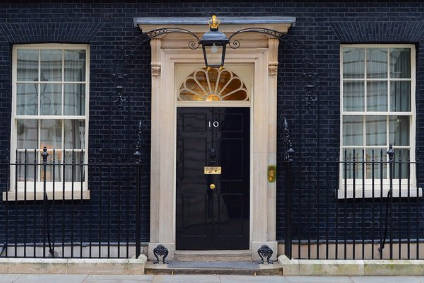
Over 80 organisations representing the health and welfare of Britons have called on the new government to adopt common sense food, farming and fishing policies that will benefit jobs, health and the environment.
In a letter to Prime Minister Theresa May and David Davis, who has been tasked with overseeing the new department that will manage the UK’s exit from the EU, the organisations which include food, farming, fair trade, poverty, animal welfare, wildlife, health and environmental bodies argue that good food, farming and fishing policies must be a key priority to any post-EU referendum strategy for the UK.

Discover B2B Marketing That Performs
Combine business intelligence and editorial excellence to reach engaged professionals across 36 leading media platforms.
The letter states that with so many of the UK’s food and farming policies being developed at EU level, the UK government has the ideal opportunity to remodel those to make sure that taxpayers money is best spent.
The organisations also claim that better food, farming and trade policies can help to cut greenhouse gas emissions by 80% by 2050, and also help to promote healthier diets to stem heart disease, cancers, diabetes and obesity, saving the National Health Service (NHS) millions of pounds.
The letter also urges the government to adopt ethical and sustainable farming methods, improve animal welfare, and protect the environment while providing a safe and traceable food supply.
Kath Dalmeny, head of Sustain, an alliance of food and farming organisations, who organised the letter, said: “The British public has given no mandate for a reduction in food and farming standards, a weakening of protection for nature, nor a reversal of the UK’s commitment to lifting millions of the poorest people in the world out of poverty through trade. We are seriously concerned that such vital considerations may be over-run by a drive for new trade deals at any cost.”

US Tariffs are shifting - will you react or anticipate?
Don’t let policy changes catch you off guard. Stay proactive with real-time data and expert analysis.
By GlobalDataStanley Johnson, father of new UK foreign secretary Boris Johnson, and co-chairman, Environmentalists for Europe, said: “Brexit means Brexit. What matters now, on the food, farming, fishing and animal welfare front, is to make sure we don’t throw out the baby with the bathwater.
“We need to stick to key standards agreed throughout Europe, often as a result of a UK initiative, and we need to find ways of ensuring that, in the future, we are still able to play a leadership role in European and international food, farming, fishing and environmental negotiations.”
Professor Tim Lang from the Centre for Food Policy, City University London, pointed out that Brexit was largely won on the ideal that the UK can take back control. “But what does this mean in a country that imports nearly a third of its food,” he asked. “How will we manage for fruit and veg pickers if we can no longer rely on the 65% of our farm workers that come from other EU countries? If we want a home-grown supply of fresh, healthy and sustainable food, then farm incomes must improve, including fair terms of trade for farmers, and better pay and conditions for farm workers, as well as some level of continued allowance for migrant and seasonal workers.”
Malcolm Clark, coordinator of the Children’s Food Campaign, an alliance of health and children’s organisations, said: “Brexit must not mean an end to policies that can reduce the diet-related conditions, such as cancers, diabetes, obesity and heart disease, that threaten to overwhelm the NHS.
“We have already waited nearly a year for the government’s Childhood Obesity Strategy, yet decisive action is still urgently needed to decrease consumption of junk food. Since the result of the EU referendum, we have already seen the food and soft drinks industry calling for the sugary drinks tax to be shelved. But the UK’s future outside Europe must not be allowed to result in a rise in diet-related disease.”
Tim Aldred, head of policy and research at the Fairtrade Foundation said: “Millions of people in developing countries work hard and rely on their food exports to the UK for their livelihoods. It is essential that the UK takes their needs into consideration when negotiating new trade deals, to ensure there is no loss of livelihoods amongst the world’s poorest people.”
Ruth Westcott, who coordinates the national Sustainable Fish Cities campaign, a collaboration of the UK’s leading marine conservation and sustainable fish organisations, said: “We can take back control of our seas to some extent. But it is vitally important that life outside the EU does not lead to a fishing free-for-all.”





